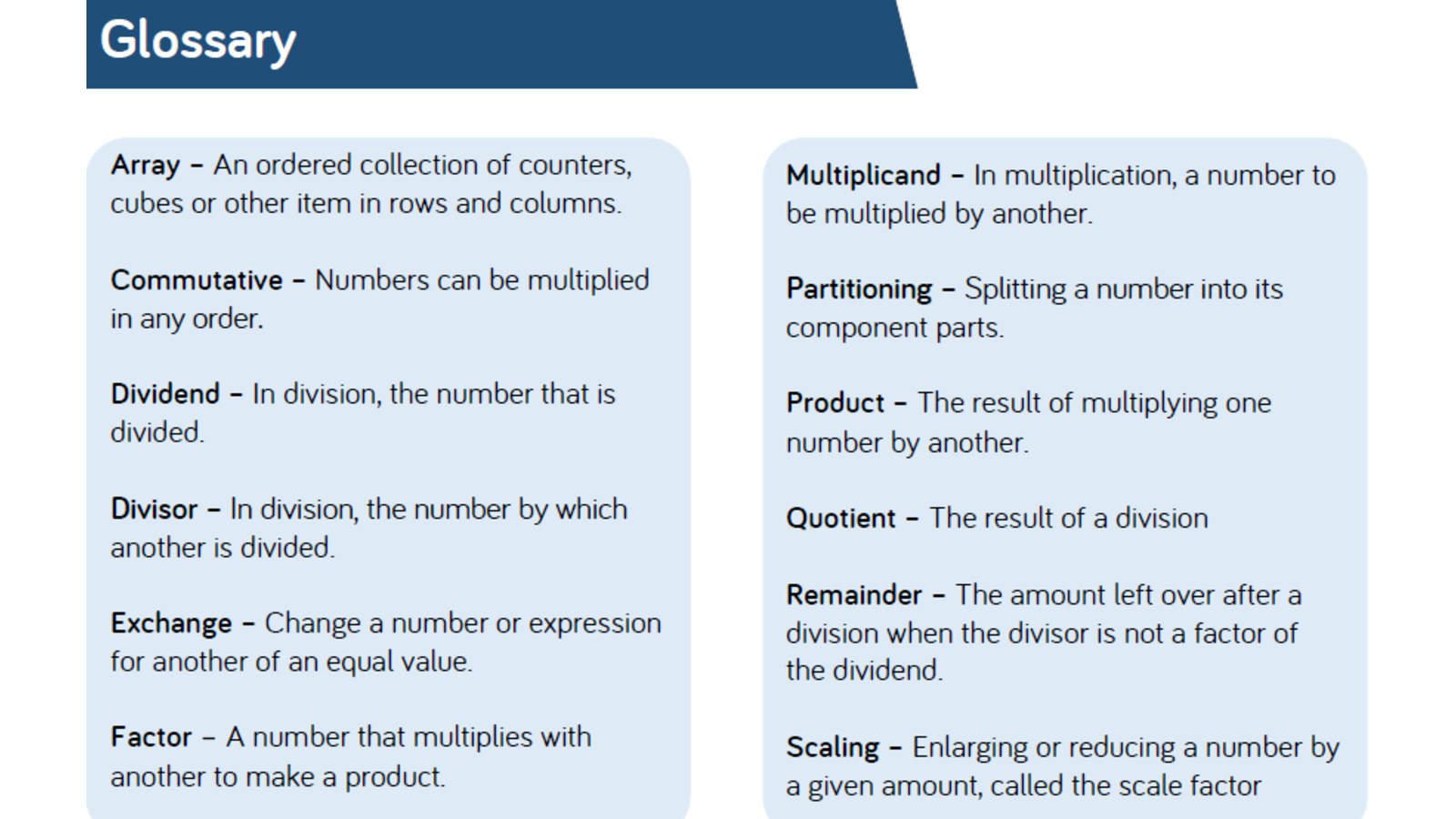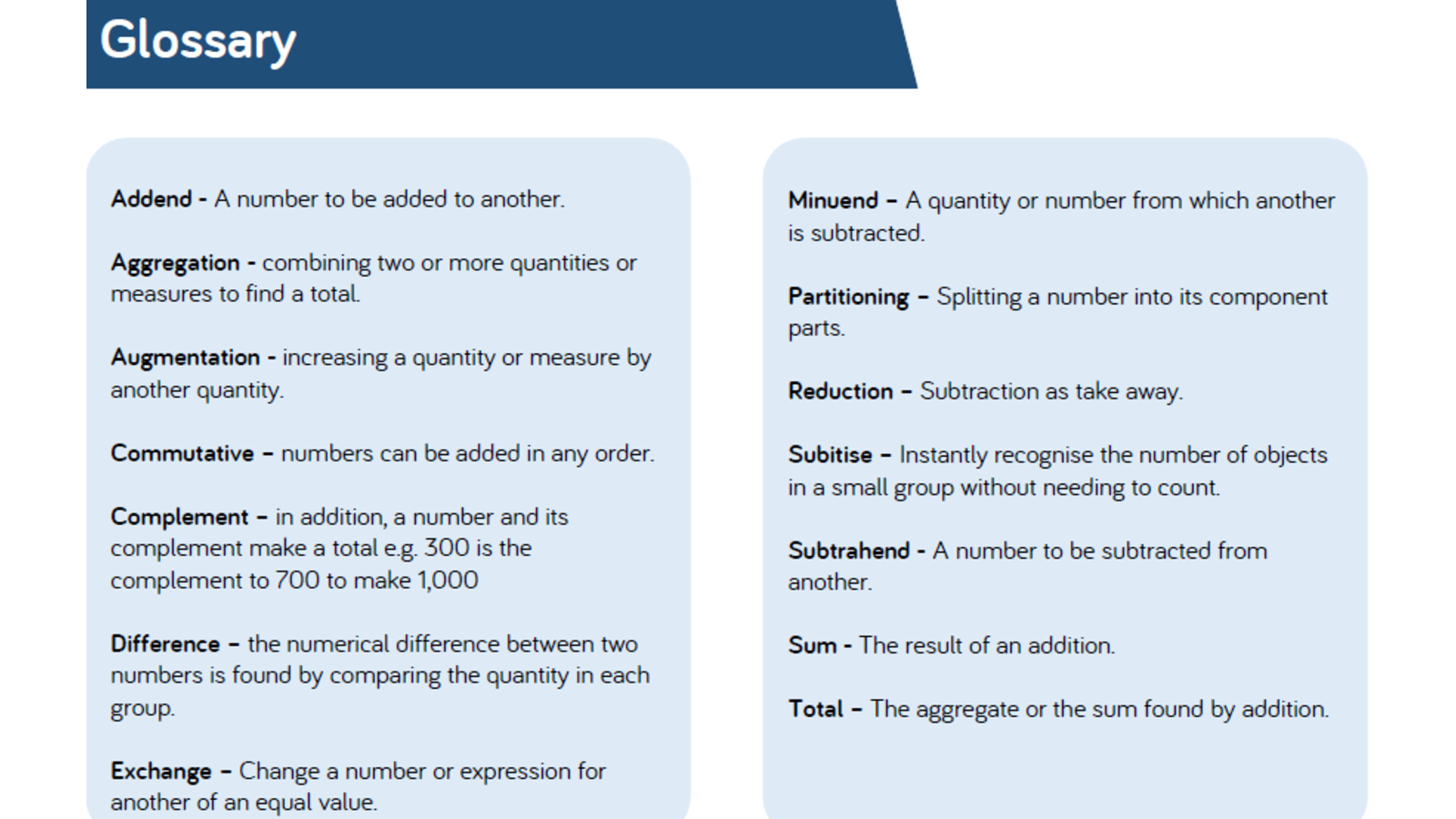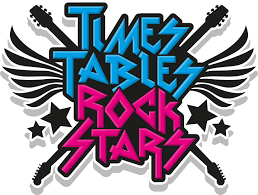Intent
At Moorhill, we want children to think mathematically, develop mathematical language and reasoning skills so that they become lifelong mathematicians. Instead of learning mathematical principles by rote, we want pupils to develop a deep conceptual understanding, which will enable them to apply their learning in different problem-solving situations.
We teach all aspects of the National Curriculum through implementing the White Rose Mathematics Scheme.
The key principles of conceptual understanding, mathematical vocabulary and mathematical thinking are embedded across the school. White Rose is a researched-based scheme where the key principles align with the school’s vision for pupils to be articulate, numerate and possess lifelong skills for learning.
A vital part of conceptual understanding in mathematics is the use of concrete, pictorial and abstract representations. Throughout the school, children are given many opportunities to use these representations and talk about them mathematically.
At Moorhill, we aspire our children to foster love a of mathematics. We acknowledge that children learn in their own way, and work with children to find a learning style that enables them to access maths in their own way. Growth mindset is a key component of our approach to mathematics. We believe that every child can be successful in mathematics with the right learning opportunities.

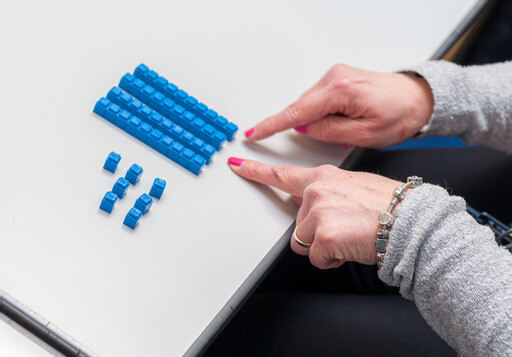
Implementation
The curriculum at Moorhill is cumulative. Each school year begins with a focus on concepts and skills that have the most connections, which are then applied and connected throughout the school year to consolidate learning. This gives pupils the opportunity to master maths using previous learning throughout the school year and throughout their school life. They are able to develop mathematical fluency and conceptual understanding.
Teachers use the White Rose Curriculum Maps and the National Curriculum to inform their planning. Resources are adapted to meet the needs of learners in each class ensuring suitable support and challenge is always present.
White Rose is aimed at encouraging ‘a culture that produces strong, secure learning and real progress.’ Moorhill implements this by working in small steps, sometimes smaller than White Rose, and embedding learning through skills practice and Maths Meetings.
At least three times a week, children take part in a ‘Maths Meeting’ these are 15-minute sessions which are broken down into short segments and cover several areas of the curriculum. They are designed to provide opportunity to regularly rehearse key skills such as times tables and additive facts.
We acknowledge that some of our learners will progress at a different pace. For our learner’s with SEND, and where the age appropriate curriculum is not appropriate, a bespoke SEND provision is provided.


Impact
Our curriculum is carefully designed to give children the self-belief, knowledge and skills to be successful mathematicians.
We measure the impact of the curriculum through the following methods:
- Pupil discussion about their learning
- NTS standardised tests are completed at the end of each term and national statutory testing.
This data is analysed against prior attainment and progress is monitored. We acknowledge that pupil’s progress in mathematics is demonstrated through their personalised journey. Where a child has not made sufficient progress, they are identified as ‘Target Children’ for the following term. Targeted, personalised interventions are carried out and these children are then expected to ‘get back on track’.
By the time children leave Moorhill we want them to:
- Become fluent in the fundamentals of mathematics, including varied and frequent practice with increasingly complex problems over time, so that pupils develop conceptual understanding and the ability to recall and apply knowledge rapidly and accurately.
- Reason mathematically by following a line of enquiry, make conjectures, discover relationships and make generalisations, justify and prove using mathematical language.
-
Solve problems by applying their mathematics to a variety of routine and non-routine problems with increasing sophistication, including breaking down problems into a series of simpler steps and persevering in seeking solutions.
Calculation Policy
Addition and Subtraction Calculation Policy
Multiplication and Division Calculation Policy
Parental Information for White Rose Maths
Learners with Special Educational Needs
At Moorhill, we scaffold and adapt the learning in Mathematics to enable all learners to succeed.
Learning is adapted through:
- Explicit teaching and modelling
- Scaffolded resources
- The use of concrete manipulatives
- Pictorial examples and representations
- Use of technological resources to support learning. For example: online number lines and place value charts
- Frequent revisiting of skills within maths meetings
- Maths books are dyslexia friendly (buff paper)
- Adult support
Curriculum Overviews
Year 1
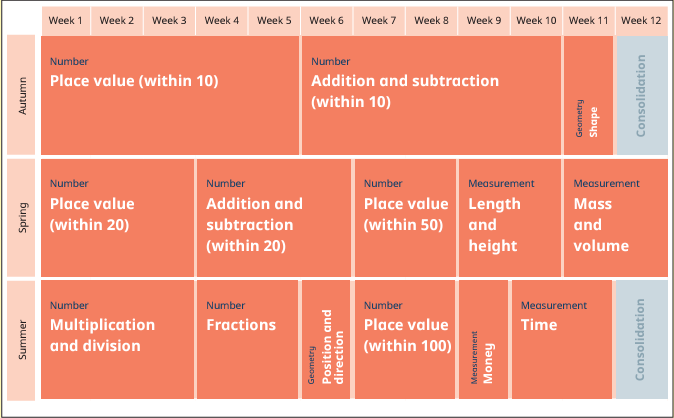
Year 2
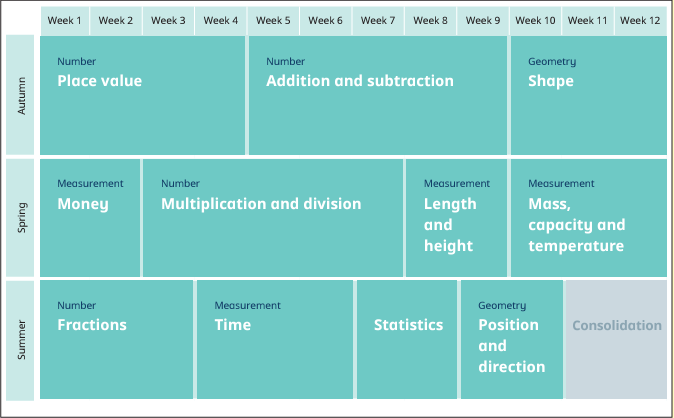
Year 3
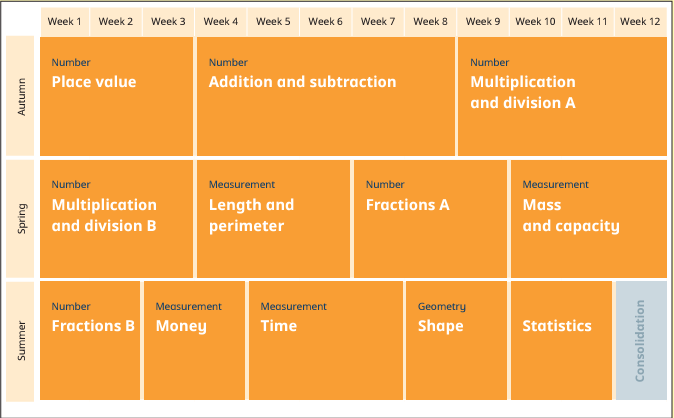
Year 4
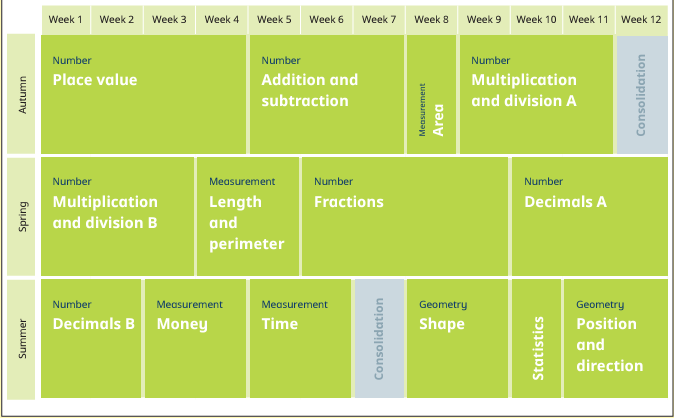
Year 5
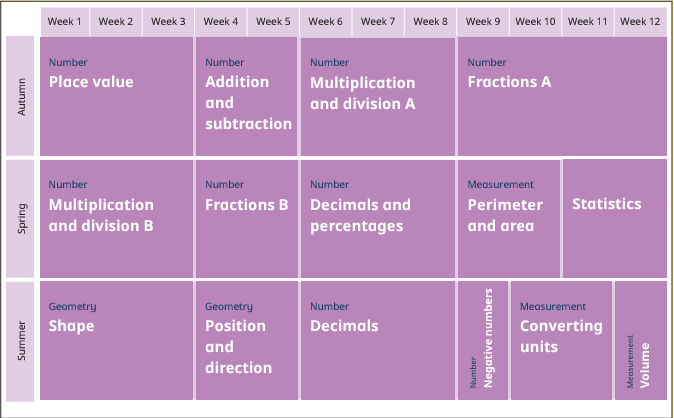
Year 6
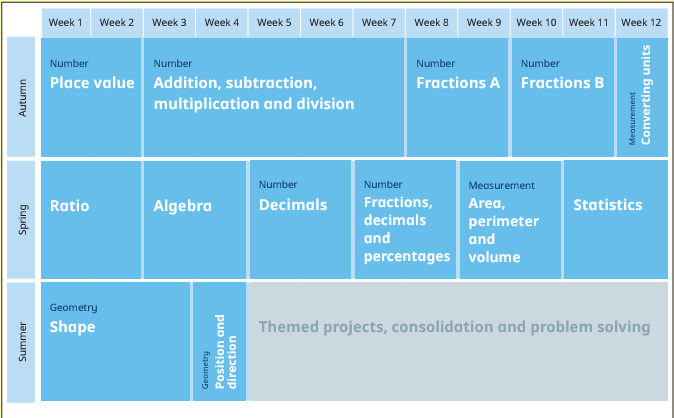
Children in Year groups 3 - 6 have access to Mirodo, an app that allows children to rehearse and refine their mathematical skills. This is used both in school and as homework.
Numbots is used in Year 1 and Year 2. This resources encourages children to develop their number knowledge, addition and subtraction and number bonds. This resource us used both in school and as homework.
Times Tables Rock Stars is used in Year 2 - 6. This resources encourages children to develop fluency in their multiplication times tables. This resource is used both in school and as homework.
